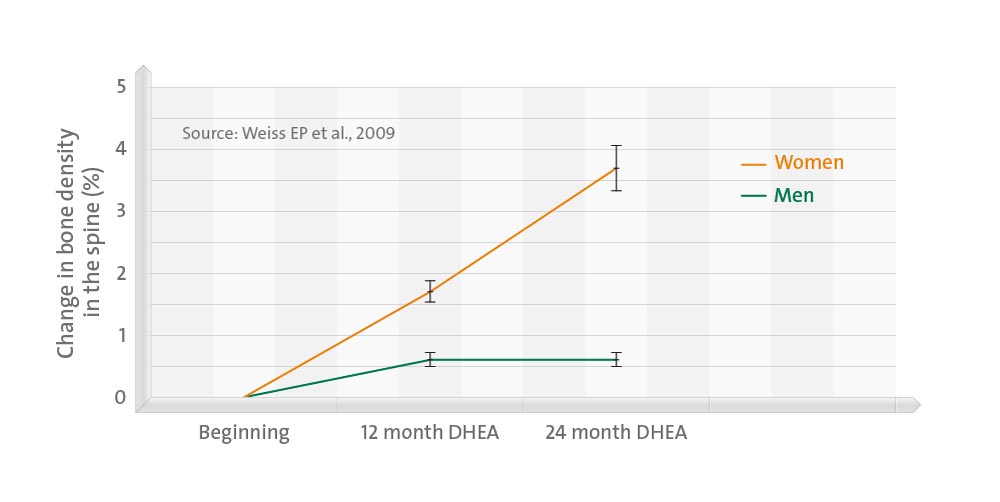Background
Age-related reductions in serum dehydroepiandrosterone (DHEA) concentrations may be involved in bone mineral density (BMD) losses.
Objective
The objective was to determine whether DHEA supplementation in older adults improves BMD when co-administered with vitamin D and calcium.
Design
In year 1, a randomized trial was conducted in which men (n = 55) and women (n = 58) aged 65-75 y took 50 mg/d oral DHEA supplements or placebo. In year 2, all participants took open-label DHEA (50 mg/d). During both years, all participants received vitamin D (16 microg/d) and calcium (700 mg/d) supplements. BMD was measured by using dual-energy X-ray absorptiometry. Concentrations of hormones and bone turnover markers were measured in serum.
Results
In men, no difference between groups occurred in any BMD measures or in bone turnover markers during year 1 or year 2. The free testosterone index and estradiol increased in the DHEA group only. In women, spine BMD increased by 1.7 +/- 0.6% (P = 0.0003) during year 1 and by 3.6 +/- 0.7% after 2 y of supplementation in the DHEA group; however, in the placebo group, spine BMD was unchanged during year 1 but increased to 2.6 +/- 0.9% above baseline during year 2 after the crossover to DHEA. Hip BMD did not change. Testosterone, estradiol, and insulin-like growth factor 1 increased in the DHEA group only. In both groups, serum concentrations of bone turnover markers decreased during year 1 and remained low during year 2, but did not differ between groups.
Conclusion
DHEA supplementation in older women, but not in men, improves spine BMD when co-administered with vitamin D and calcium. This trial was registered at clinicaltrials.gov as NCT00182975.
